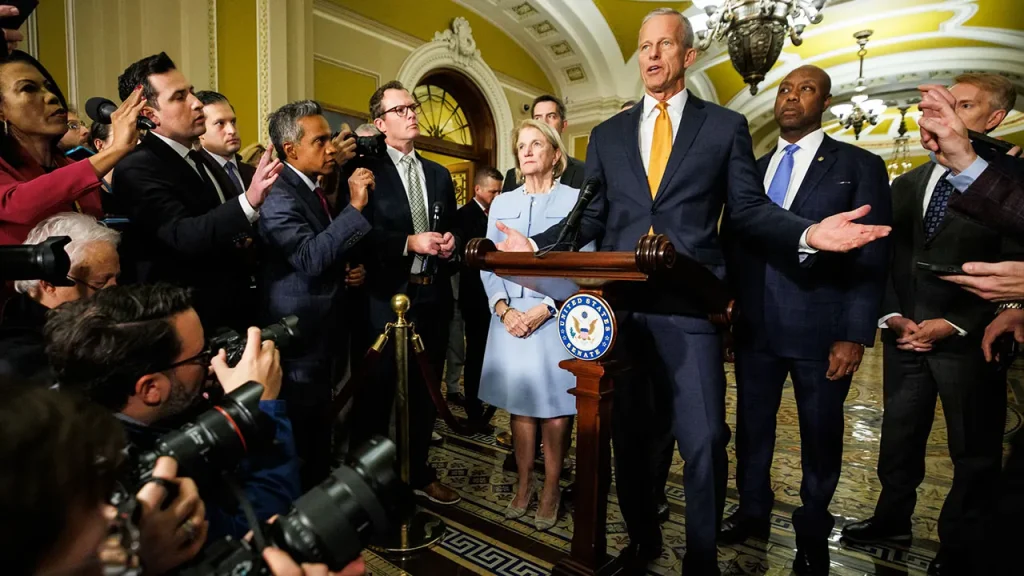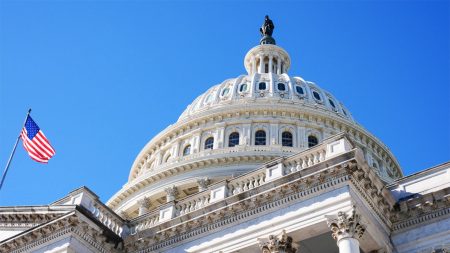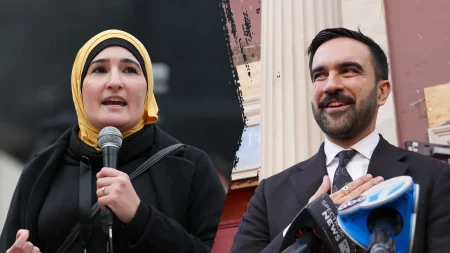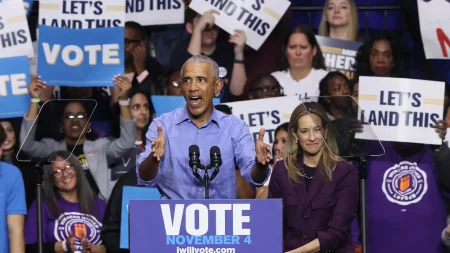Senate Republicans Consider Pushing Back Government Funding Extension as Shutdown Persists
As the U.S. government shutdown continues to break records in terms of duration, Senate Republicans, led by Majority Leader John Thune, are considering extending the deadline for government funding beyond the House-passed November 21 date. With the shutdown dragging on and precious time slipping away, GOP lawmakers recognize that the original seven-week timeline has now shrunk to just three weeks, making it nearly impossible to complete the necessary appropriations work within that timeframe. “The idea that we could get any appropriations bills done by November the 21st now, that date’s lost,” Thune acknowledged, expressing openness to pushing the deadline into January of next year to provide adequate time for the normal appropriations process.
The current continuing resolution (CR) passed by the House has been blocked an astonishing 13 times by Senate Minority Leader Chuck Schumer and Senate Democrats, creating a legislative stalemate that has pushed the government closure into uncharted territory. Senate Republicans previously attempted to advance a package of three funding bills late last month, but these efforts were similarly thwarted by Democratic opposition. The political reality is that any funding solution will require significant bipartisan support to reach the 60-vote threshold in the Senate, a challenging prospect given the current climate of partisan division. As Thune explained, “If you want to do normal appropriations work, you look at how long it takes to get bills across the floor in the Senate and through the House… the longer runway there is better.”
The situation is further complicated by the extended absence of the House of Representatives, which Speaker Mike Johnson has kept out of session for more than six weeks. When questioned about the dwindling timeline of the House-passed CR, Johnson didn’t directly address whether a new resolution or extension would be necessary, instead placing blame on Senate Democrats for “taking the time off that clock.” Despite this finger-pointing, there seems to be a growing recognition among House lawmakers that additional time will be needed given the Senate impasse. House Appropriations Committee Chairman Tom Cole candidly admitted that a new CR would be necessary “having wasted this much time,” suggesting that an extension into early January might provide a realistic timeframe while avoiding a dreaded year-end omnibus spending package.
Not all Republicans share the same vision for resolving the funding crisis, however. A faction within the GOP, notably the House Freedom Caucus led by Representative Andy Harris, is advocating for a much longer-term solution that would extend funding into December 2026—provided they agree with the specifics of such a measure. This divergence in preferred approaches highlights the internal divisions that Republican leadership must navigate while simultaneously trying to reach across the aisle to secure Democratic support. The complexity of these negotiations is further compounded by the approaching Veterans’ Day recess scheduled for next week, raising the possibility that lawmakers might leave Washington with the government still shuttered.
Despite these challenges, Senator Thune expressed cautious optimism that the shutdown could end this week, though he stopped short of calling for the cancellation of the upcoming recess. “If we don’t start seeing some progress or some evidence of that by at least the middle of this week, it’s hard to see how we would finish anything by the end of the week,” he noted. The Senate Majority Leader characterized the current situation as “unlike any other government shutdown,” suggesting that the typical political playbook may not apply to this unprecedented impasse. What remains clear is that any solution will require compromise from both sides of the aisle and coordination between both chambers of Congress.
As the shutdown continues to impact federal workers and services across the country, the pressure mounts on lawmakers to find a path forward. Whether through a new continuing resolution with an extended deadline, amendments to the House-passed bill, or some other legislative mechanism, Congressional leaders are searching for what Thune called an “off-ramp” from the current crisis. The coming days will be critical in determining whether that exit can be found before senators leave for their scheduled recess, or if the government shutdown will continue to stretch into record-breaking territory with no clear end in sight. For millions of Americans affected by the closure, the resolution can’t come soon enough, regardless of which side ultimately claims political victory in this protracted standoff.















